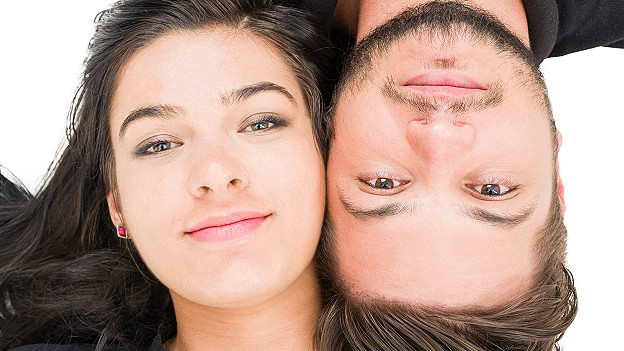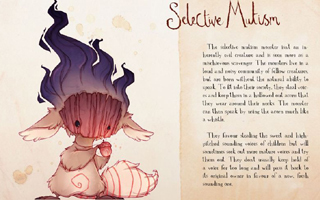我們的頭部可以發(fā)送各種各樣的身體語(yǔ)言信號(hào)。低著頭可以代表對(duì)“威脅”的自我保護(hù)姿勢(shì)。有些人在碰到擔(dān)心憂慮的事情的時(shí)候,會(huì)觸摸頭的某一部分,這就顯示了他們焦慮情緒的跡象。我們的頭部是相當(dāng)沉重的,所以當(dāng)我們累了的時(shí)候,我們會(huì)習(xí)慣用我們的手和手臂來(lái)支撐它。當(dāng)我們?cè)谒伎紗?wèn)題的時(shí)候,我們可能也會(huì)托著下巴來(lái)支撐頭部。

The gesture may look cosy, but the meaning isn't
今日小常識(shí)
The head can send a wide variety of body language signals. A lowered head can be a defensive posture that occurs as a result of a perceived threat. Touching the face is often seen as a sign of anxiety and people have regular places they touch when they are worried. Our heads are quite heavy, so when we are tired we may use our hand and arm to prop it up. Sometimes when we are thinking, we may also prop up the head.
今日短語(yǔ)
To go head-to-head 意思是兩人之間頭對(duì)頭地競(jìng)爭(zhēng)。
例句
They're both amazing swimmers - I can't wait to see them go head-to-head.
There can only be one winner. We'll have to go head-to-head to decide who it is.
請(qǐng)注意
還有一個(gè)意思類似的短語(yǔ)是 neck-and-neck, 它的意思是在競(jìng)爭(zhēng)或競(jìng)賽中不相上下。
例句
At this stage, either of them could win. It's neck-and-neck!
英語(yǔ)中還有很多類似結(jié)構(gòu)的短語(yǔ),比如 eye-to-eye, face-to-face, cheek-to-cheek, shoulder-to-shoulder 或 back-to-back 不過(guò)他們的意思各不相同!
關(guān)注和訂閱
人氣排行
熱搜詞

精華欄目











